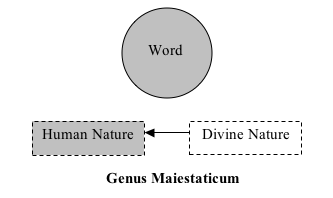Dear LadyLike,
In a world where men and women interact much more freely and frequently than they have in the past, what should we bear in mind as we discuss theological matters in mixed company? For those of us ladies who are deeply interested in theology and often find ourselves in groups (online or in person) almost exclusively consisting of men, many of whom are pastors, what should be our level of participation, and what rules of thumb should we follow if and when we do participate in discussion? Should we only ask questions, or may we also make assertions and arguments, even against other pastors? Should we simply listen? Or should women not even be involved in these conversations at all and, in keeping with 1 Corinthians 14:35, "If there is anything they desire to learn, let them ask their husbands at home." (Or is this passage applicable in these scenarios, since Paul's next sentence is, "For it is shameful for a woman to speak in church," and these conversations take place outside of the Divine Service?)
Sincerely,
A Recovering Conversation Hog
Dear RCH,
The length of this post is ridonks. There is a section at the bottom called "The Useful Part" if you have responsibilities or something.
Yeah, the old "I'm a girl who's interested in theology" thing is a headache. There is certainly nothing wrong with women being interested in theology as a scholarly discipline, but it demands that several scenarios be spoken to. I'm going to deal with them from easiest to hardest. First is pastoral casuistry and camaraderie. Second is formal study, which at the higher end is mostly pursued by potential pastors, who are all men. Third is informal study, which is the hardest to feel out.
When pastors get together for discussion of pastor stuff, it should only be pastors. The main place this happens is circuit meetings or winkels. Pastors in the LCMS are technically required to go to these, and the reason is that it helps our Synod stay synodical by keeping pastors in contact with their real life pastor-neighbors, not just the guys who agree with them about everything. These meetings are not "let's talk theology" clubs. They are a practical necessity for a specific group of professionals: pastors.
Sometimes pastor's conferences or other events are explicitly or effectively open to family members, other members of the church's staff, or laymen who might want to hear a speaker or presentation. Laymen who attend such things are courteous to be sensitive to times or places pastors would benefit from time with each other (eg if there are breakout sessions for circuits, designated groups, or whatever).
Planners of events for pastors can do everyone a service by making very clear for whom the event is intended, and/or specifying which events within the event are for whom.
Lest we have our feelings hurt, let us consider if wouldn't it kind of put everyone on the spot if your pastor showed up at your next work meeting, friends' weekend, or professional conference. A lot of pastor-type-things fall into one or more of these frequently overlapping categories. It's really weird that anyone would begrudge them that.
Formal study has gotten overhauled in recent history. Not that long ago, all seminary students were single men who lived on campus. Now the seminaries are crawling with married guys, fathers, females, and folks who are just interested in theology. Lay theologians are wonderful for the church for all kinds of reasons. At the same time, these changes have caused the pastoral training experience to become less focused upon theology.
I got my MA at Concordia Seminary while my husband was also a student there (we got married straight out of college). There were a lot more men than women in classes, and a few times I was the only female type. But there was an understanding all over campus that if there were females in your class, the class changed. Every quarter, there were fingers crossed that a few professors' classes in particular would be Frauenfrei. I didn't get that, except that probably professors wouldn't talk about 6th commandment stuff as much. Well, shouldn't we all know that anyway at this point in our lives? Like, yuck and grow up.
Men feel they have a duty to protect others, but not to expect protection for themselves. Only when men are in groups together do they have the expectation of protection. The brotherhood between soldiers, firefighters, other groups of men who protect one another creates a way out of the bind that by needing protection, men forfeit their right to protection, because real men are protectors, not the protected. All humans exist in a dominance hierarchy. . . . Activities in all men groups offer men the opportunity to establish their talents and determine their rank, and from that position, assistance is rendered.
This makes sense to me. When men are in a group of men, they are free of a certain level of "on"ness. They do not have to wear their social Spanx. They can figure out where each of them stands in the group; they can ask questions, challenge each other aggressively, take intellectual risks, and be absolutely open with their thoughts. They do not have to think about trigger warnings. They can say, "Sir, thou knowest thou speakest buncombe" when someone absurdly mischaracterizes something they've said. If someone is genuinely insulting, they can insult him back or sock him. They don't have to be on the lookout for anyone but themselves, and that frees them to choose to look out for each other. They also have a possibility of receiving protection they do not have when in the presence of those whose need for protection is greater. They all have an equal claim on and duty toward each other. This enables exactly the kind of mind-sharpening that should occur at the seminary among our future pastors.
 Now throw in a woman. Some of the men will actively want her attention; most will be concerned about her feelings, dignity, and natural demand on their deference; some will be at least passively concerned about her perception of them; and somebody will have to punch the jerk who says something rude about her when he walks past them all. A woman in the group means they are all on duty. They are no longer free with each other because they all have a prior duty toward her. (The same basic thing happens when there's a dude in a group of ladies, but the particulars are different and the scenario occurs far less frequently.)
Now throw in a woman. Some of the men will actively want her attention; most will be concerned about her feelings, dignity, and natural demand on their deference; some will be at least passively concerned about her perception of them; and somebody will have to punch the jerk who says something rude about her when he walks past them all. A woman in the group means they are all on duty. They are no longer free with each other because they all have a prior duty toward her. (The same basic thing happens when there's a dude in a group of ladies, but the particulars are different and the scenario occurs far less frequently.)
But the seminaries have their reasons for wanting to enroll female students, so I don't think there's any going back to the old way. Here is my solution: I think divinity students would be well served by having a significant number of classes in all areas of theological study AND devotional retreats that are for divinity students only. I think courtesy would have non-divinity students respect what is to be gained under such an arrangement, and encourage and support its establishment and practice.
Informal study is what you were really getting at, though, dear Hog, so I thank you for bearing with my groundwork-laying. Doubtless you have noticed that I think there is a debt of respect on the side of the odd lady or ladies, since contemporary men have shown themselves more than generous in sharing their space (whether voluntarily or under the social compulsion of our time).
The first thing to consider is what expectation the other participants have. If a forum is declared open, all participants agree to that openness. Those who would prefer a more exclusive forum are welcome to host one. Whatever qualifications for participation are specified should be honored. Ambiguity makes everyone uncomfortable, so any group is showing good manners by making its expectations clear upfront, which allows participants to reciprocate good etiquette. (Guys: if other guys in attendance have a reasonable expectation that the gathering will be a strictly guy group, find an alternate fun activity for your fiancee, wife, deaconess, theologically precocious daughter, or sister who really needs to start dating Lutherans like your awesome friends.)
If no statement is made about who may participate, we might ask what expectation other participants are likely to have. We may ask outright, "Is it OK if I'm there/if I ask questions/if I share opinions?" but we should bear in mind that many people do not feel free to answer that question honestly.
After that, I am not going to have a brightline for you. I can only say that I think a lady should be very circumspect in her participation in heavily dude-populated discussions. Again, it's not that there's anything wrong with her intellectual interest. It simply comes down to politeness. I do not mean this in some weird Am I being submissive enough? way but in a Am I being a courteous human being? way. Every disciple loves to sit among other worthy disciples at the feet of great teachers, but higher theology naturally segregates itself due both to its technical nature (where most disciplines begin skewing masculine for the totally reasonable reason that a lot of ladies judge their other duties to be more pressing at that point) and its practical occurrence in life (ie, people who like theology become pastors). Well, so it goes. Sometimes we talk, sometimes we listen in, sometimes we take one for both teams and go to bed early (or you could always curl up with the newest volume of Gerhard).
There is no benefit in recalcitrant denial of human social realities. Sticking out like a sore rib endears a lady to no one. Dudes like and need each other's company, and willing accommodation of that fact shows maturity and respect. I fully acknowledge that this can be frustrating when expectations are unclear, or when it feels that one person's bad manners require everyone else's to be exceptional (am I sure which person I am in that scenario?). But whereas all decent human beings sometimes tire of erring on the side of discretion, it stands to reason that the same favor is being shown us more often than we know.
The useful part.
--I once heard a pastor describe a conversation in which a lady was forward with her thoughts on a theological topic. He thought she was rather dreadfully wrong in both fact and opinion, but did not say anything. Why not? I asked him. He said, "I'm not going to argue with someone else's wife." This is kind of what I was trying to get at in the "guy group" discussion above. The number of guys hypothetically willing to say, "Madame, thou knowest thou speakest buncombe" is already low on the basis of conventional propriety. In real life, the chances are even lower. The risk that he will be decried as a sexist is not worth the trouble. The accusation as lodged is tautological (you're rejecting my ideas because you're sexist, and I can tell you're sexist because you're rejecting my ideas), therefore irrefutable, therefore a killer of discourse. There's also an emotion factor here I won't pretend isn't real; neither will I invite wrath by elaborating upon it although it would prove the point. Bottom line: women have an unfair advantage in conversations with men. Men are far less free to disagree with women than women are to disagree with men.
--1 Cor. 14:35. In his treatise On Baptism, Tertullian characterizes this verse by saying "[Paul] has not permitted a woman even to learn with over-boldness." When we think about this passage, we usually imagine the prohibition to be against formal speaking or teaching in church. Tertullian understands the problem as unbecoming learning. There is such a thing: we have all seen conversations and lectures derailed by one student's inconsiderate singlemindedness, showboating disguised as question-asking, or antipathy to fellow learners. Obviously the Divine Service would be a particularly bad setting for this kind of behavior; then again, where is it ever good?
--You asked for a rule of thumb. How about, listen twice at the very least, speak once? It can be interesting to see where a conversation goes without my meddling. :D I usually learn something I would never have thought of. Why drag the whole group down the scrubby cowpaths in my own brain? I've trampled all the life out of them on my own.
Who's the conversation hog now, asked the lady who typed 1879 words?
LadyLike






_-_3.jpg)

